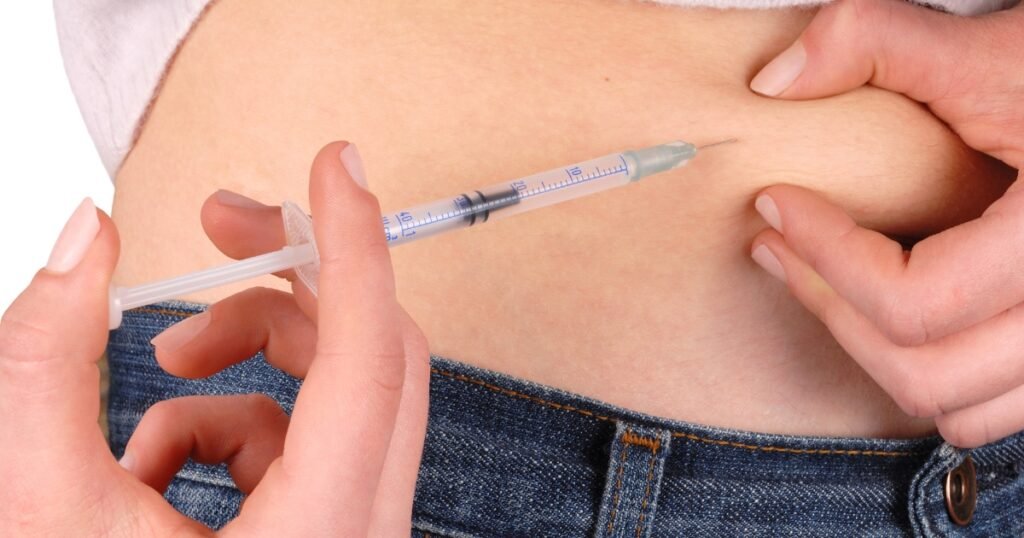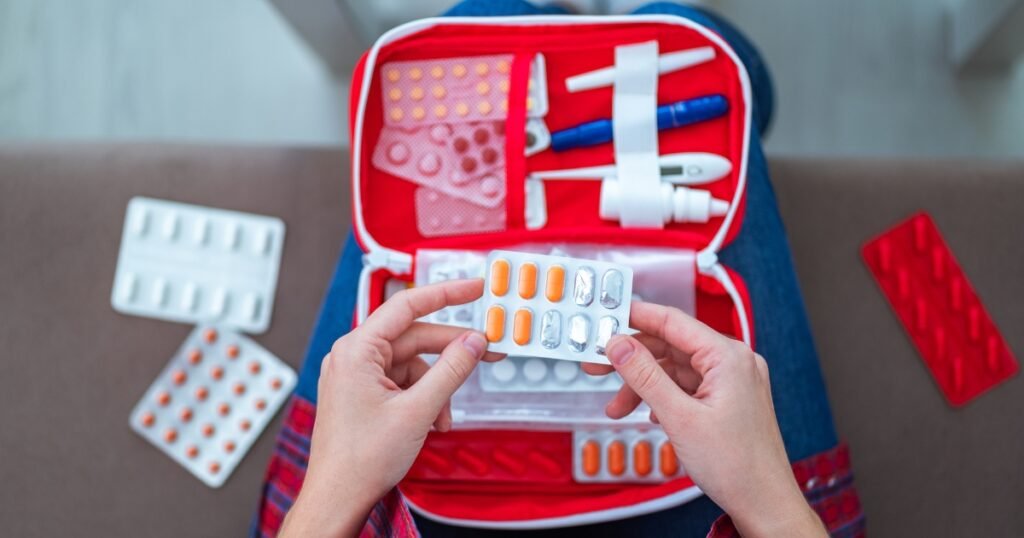Last Updated on 2 August 2024
As a fertility doctor with years of experience helping couples navigate their journey to parenthood, I understand the unique challenges faced by those undergoing IVF treatment. One of the most frequently asked questions I encounter is, “How do I manage my IVF medications while traveling?” Traveling with IVF meds can seem daunting, but with the right preparation and knowledge, it can be a smooth process.
In this article, I will share comprehensive guidance on how to travel with IVF meds, address common concerns, and offer practical tips to ensure your medications remain safe and effective throughout your journey. From understanding airline regulations and proper storage techniques to planning for time zone changes and emergencies, I will cover all the essential aspects to help you travel with confidence. My goal is to provide you with the information you need to make your travel experience as stress-free as possible while maintaining your fertility treatment regimen.
Let’s dive into the details of how to travel with IVF meds and empower you to take control of your journey, ensuring your treatment stays on track no matter where your travels take you. Planning a trip while undergoing fertility treatment might seem daunting, but it doesn’t have to bring your travel plans to a grinding halt. With careful planning and coordination with your fertility specialist, you can navigate the challenges of traveling with IVF medications and still enjoy your trip. This comprehensive guide will provide essential tips and insights to make traveling during this important time as smooth as possible.
Understanding IVF Medications and Travel Requirements
IVF medications are crucial for regulating hormones and stimulating ovulation, making a critical part of your fertility treatment. These medications often involve injectables and require specific storage conditions, making travel preparations even more critical.
Knowing what to expect and how to pack, store, and transport your IVF medications properly can alleviate a significant amount of stress. Moreover, familiarizing yourself with airline guidelines and security regulations surrounding medical supplies ensures a hassle-free journey.
The Basics of IVF Medicines: What You Need to Know
Before we jump into the specifics of traveling with IVF medication, it’s essential to understand the different types you might be prescribed. Your fertility specialist will determine the best course of fertility medication based on your individual needs and treatment plan.
Commonly used medications often include injectable hormones like follicle-stimulating hormone (FSH) and luteinizing hormone (LH), which help stimulate egg production. You might also be prescribed medicines like GnRH agonists or antagonists, which work to prevent premature ovulation.
It’s natural to have questions about your fertility medication, so don’t hesitate to discuss any concerns you have with your healthcare provider. They can walk you through the specifics of your treatment plan, dosage instructions, and potential side effects, empowering you to make informed decisions throughout your fertility journey.
Legal and Health Considerations for Traveling with Medication
Traveling with various medications, especially IVF drugs, requires some forethought, particularly when it comes to legal and health guidelines. Different countries may have specific regulations surrounding the import and possession of certain medications, so it’s always a good idea to check the embassy website of your destination for any restrictions.
Navigating airport security with your fertility medications also involves understanding the Transportation Security Administration (TSA) regulations. While medically necessary supplies and liquids exceeding the standard ounce limit are generally allowed, keeping these items separate is essential for more accessible screening.
Finally, remember to maintain your medication schedule as closely as possible, especially when traveling across different time zones. Your fertility treatment plan relies on a strict schedule, and any deviations could impact its effectiveness, making careful planning critical to your success.
Preparing for Your Journey
Taking the time to prepare for your trip correctly can make all the difference. It provides peace of mind and helps ensure the safety and effectiveness of your medications throughout your travels. Getting caught up in the excitement of trip planning is easy, but taking these extra steps offers valuable reassurance during your travels.
By following a comprehensive checklist and investing in the proper storage solutions, you can confidently embark on your journey, knowing that you’ve taken the necessary precautions to manage your fertility treatment while away from home. Taking these proactive measures lets you focus on what truly matters – enjoying your trip and prioritizing your well-being.
Making a Checklist of IVF Medication and Supplies
Picture this; you’ve arrived at your destination, ready to relax and embrace your trip, only to realize you’ve forgotten a crucial medical supply. Creating a comprehensive IVF medication and supply checklist is essential to avoiding this scenario. Not only does it help you stay organized, but it also minimizes the chance of leaving behind anything important.
Start by gathering all prescribed medications, ensuring you have enough to last throughout your trip. Your fertility clinic can advise whether it’s possible to obtain refills at your destination or if arranging for an adequate supply beforehand is necessary.
Beyond medication, pack essential medical supplies like
- Alcohol wipes
- Gauze pads
- Syringes (if applicable)
- Sharps container (for safe needle disposal)
- Doctor’s note
- Copy of your prescription
Choosing the Right Storage Solutions for Your Meds
Proper storage is often crucial for maintaining the efficacy of IVF medications, especially for temperature-sensitive injectables that require refrigeration. Investing in reliable storage solutions ensures that your medications remain safe and at the correct temperature throughout your journey.
Consider a small, insulated cooler or a travel-sized refrigerator for medications that require refrigeration. Gel packs or ice packs can be frozen in advance to keep the interior cool. Ensure they are adequately frozen to maintain the right temperature for your travel.
For medications that require room temperature storage, a simple, organized toiletry bag or a designated pouch within your luggage will suffice. Keep the medication in its original packaging and on the prescription label to avoid any confusion or potential issues at security checkpoints.
Step-by-Step Guide On How To Travel with IVF Meds
Now that you have taken care of the preparation, let’s break down the process of traveling with your IVF medications into manageable, easy-to-follow steps. By approaching it step by step, you can confidently navigate each stage without feeling overwhelmed.
Remember, staying organized, informed, and proactive are the keys to a stress-free experience while traveling during fertility treatment.
Step 1: Consult Your Healthcare Provider
Before finalizing your travel plans, it is always a good idea to have a conversation with your fertility doctor or a member of your care team. They can provide valuable insights into potential considerations specific to your treatment plan and travel itinerary.
During the consultation, discuss the details of your trip, including the destination, mode of transportation, and duration. Your fertility doctor can assess whether adjustments to your medication schedule or dosage are necessary to accommodate travel logistics and time zone changes.
This is also an excellent opportunity to address any concerns you may have about managing your fertility treatment while away from home. Your care team can offer reassurance, guidance, and practical advice, ensuring you feel supported and prepared throughout your journey.
Step 2: Inform Your Airline and Arrange Special Accommodations
In the excitement of planning a trip, it is easy to overlook the finer details, but when traveling with IVF medications, understanding airline policies is crucial for a stress-free journey. Each airline may have specific guidelines regarding traveling with medications, especially injectables and medical supplies. Once you clearly understand your travel requirements from a medical perspective, contact your airline well before your departure date to inform them about your IVF medication and any necessary medical supplies. Being upfront about these details allows the airline to guide you through their specific policies and assist in making your journey as smooth as possible.
It is always best to err on the side of caution and call your chosen airline before your scheduled departure. Inquire about their policies regarding the transport of medical necessities and any special accommodations they might offer. For instance, they might require you to submit a medical form signed by your doctor or have specific regulations for carrying refrigerated medications.
While airlines generally accommodate passengers traveling with medical necessities, it’s wise to inquire about any restrictions they might have. Understanding their policies beforehand helps prevent potential delays or complications at the airport. Providing advance notice allows ample time to acquire any necessary documentation or make alternative arrangements, ensuring a more comfortable and stress-free travel experience.
Communicating your needs upfront empowers them to address them effectively, ensuring a smooth check-in process and a comfortable flight. Don’t hesitate to ask questions and clarify any doubts. Airlines are there to assist you and make your travel experience as pleasant as possible.
Step 3: Packing Your Medications Correctly
When packing for your trip, consider carefully where you place your IVF medications. Avoid packing them in your checked luggage; keep them with you at all times in your carry-on bag. Placing medications in checked luggage increases the risk of damage, theft, or misplacement.
Carry-on luggage stays with you throughout your flight, providing greater control and peace of mind. Keeping your medications within arm’s reach ensures you can readily access them during the journey. Additionally, storing your medications in your carry-on luggage complies with security regulations regarding transporting liquid drugs and sharp objects like syringes. Adhering to these guidelines contributes to a smoother and safer travel experience for everyone.
A systematic and organized approach can make a difference when packing IVF medications. First, keep all medicines, especially injectables, in their original packaging. This protects them, helps with identification, and prevents any questions from airport security.
Consider investing in a small, transparent, and resealable plastic bag to store all your medications in your carry-on luggage. This will make it convenient to present them separately at security checkpoints without rummaging through your belongings.
Pack a few extra alcohol wipes, gauze pads, and syringes (if applicable) in a separate resealable bag within your carry-on. This precautionary measure ensures you are prepared for unexpected situations or delays that might require administering your medication on the go.
Step 4: Arrange for Refills Where You’re Headed
Before you head out on your trip, take some time to consider your medication needs. Will you have enough to last throughout your time away? Running out of essential medication while traveling can be stressful, especially when it’s related to your fertility treatment.
Reach out to your fertility center and discuss your travel plans. They can guide you on the best course of action regarding refills. In some cases, your fertility center may be able to send a prescription to a pharmacy at your destination, ensuring you have access to your medication if needed.
It’s also a good idea to ask for a copy of your prescription to carry with you, just in case. This information can be invaluable if you encounter any unforeseen circumstances or need to replenish your medication supply while traveling.
Step 5: Navigating Airport Security and Customs
For many, navigating TSA regulations and airport security can feel overwhelming, especially when carrying medications. However, understanding the procedures and being prepared can significantly reduce stress and ensure a smooth process. Remember, TSA regulations allow for medically necessary liquids, gels, and supplies in quantities exceeding the standard limits.
As you approach the security checkpoint, notify the TSA officer that you carry IVF medications and related supplies. It’s helpful to have them easily accessible in their designated resealable plastic bag, along with your doctor’s note and prescription.
Though it’s rare, be prepared for additional screening. This might involve swabbing your medications or inspecting your cooler. You can expedite the process by remaining calm and courteous and providing any requested documentation. Remember, airport security personnel ensure everyone’s safety; clear communication is vital to a hassle-free experience.
Step 6: Account for Time Differences
Traveling across different time zones can disrupt your regular routines, and this is especially true when adhering to a strict medication schedule as part of your fertility treatment plan. The last thing you want is a missed dose, derailing your IVF journey due to time zone confusion.
Before you depart, talk to your fertility specialist about any potential time zone adjustments needed for your medication schedule. They can guide you on the best times to administer your medications based on your destination’s time zone.

Utilizing smartphone alarms or reminder apps can be invaluable in keeping you on track while traveling. Set alarms according to your adjusted medication schedule to ensure you never miss a dose, no matter where in the world you are.
Traveling with IVF medications can be stressful, but with proper preparation, it can be manageable. Remember to arrange refills at your destination, inform your airline, and pack your medications securely. Understanding airport security procedures and time zone changes is essential. Ensure you have the necessary documentation and follow your airline’s policies. Keeping medicines in your carry-on is crucial. Check out our related articles for more detailed tips on invitrofertilization (IVF). Safe travels!









